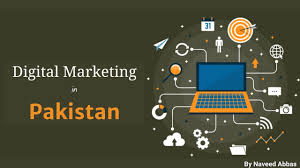Introduction
In the ever-evolving landscape of global business, the term “Global 5000” has emerged as a significant benchmark for measuring corporate success and influence. These are the top 5000 companies from around the world, representing the cream of the crop in terms of revenue, market capitalization, and overall economic impact. In this article, we will delve into the world of the Global 5000, exploring what it means to be a part of this elite club, the key players within it, and the global implications of their activities.
Defining the Global 5000
The Global 5000 is a term that encapsulates the largest and most influential companies on the planet. It’s a list that cuts across industries, encompassing sectors such as technology, finance, manufacturing, healthcare, and more. These companies are not only giants in terms of revenue and market capitalization but are also known for their global reach and significant contributions to the world economy.
To make it into the Global 5000, a company must meet stringent criteria. It must generate substantial revenue, have a significant market presence, and demonstrate sustainability and growth potential. Inclusion in this exclusive list is a testament to a company’s ability to navigate the complexities of the global market and thrive in an ever-changing business environment.
Key Players in the Global 5000
While there are 5000 companies on this prestigious list, a few key players stand out due to their size, influence, and impact on the global stage. Let’s take a closer look at some of these corporate titans:
- Apple Inc.: Apple, the tech giant headquartered in Cupertino, California, consistently ranks among the top companies in the Global 5000. Known for its innovative products, such as the iPhone and MacBook, Apple’s brand recognition and global footprint are unmatched.
- Saudi Aramco: The world’s largest oil company, Saudi Aramco, plays a pivotal role in the global energy sector. Its operations span the entire value chain of oil and gas, making it a critical player in global energy security.
- Amazon.com: Amazon, led by Jeff Bezos and later Andy Jassy, has redefined the retail landscape and cloud computing industry. With its vast e-commerce platform and Amazon Web Services (AWS), the company has become a global powerhouse.
- Microsoft Corporation: Microsoft is a pioneer in the software industry and a leader in cloud computing services. Its products, including Windows and Microsoft Office, are staples in both the business and personal computing worlds.
- Alphabet Inc. (Google): Google, a subsidiary of Alphabet Inc., dominates the global internet search market and has a significant presence in areas like online advertising and cloud computing.
Global Impact of the Global 5000
The Global 5000 companies aren’t just economic giants; they also wield considerable influence on various aspects of the global economy, society, and environment.
- Employment: These corporations employ millions of people worldwide. Their ability to create jobs and drive economic growth is a substantial contribution to local and global economies.
- Innovation: Many of the companies on this list are at the forefront of technological innovation. Their investments in research and development lead to breakthroughs that benefit society as a whole.
- Market Dynamics: The actions and decisions of Global 5000 companies can significantly impact market dynamics. For instance, when Amazon enters a new sector, it often disrupts existing market structures, reshaping entire industries.
- Sustainability: As the world becomes increasingly aware of environmental challenges, many Global 5000 companies are taking steps to reduce their carbon footprint and promote sustainability. Their efforts set important precedents for other businesses.
- Global Trade: These companies are major players in international trade, influencing trade policies and negotiations between nations. They are instrumental in shaping the global flow of goods and services.
Challenges Faced by the Global 5000
While the Global 5000 enjoy immense success, they also face several challenges:
- Regulatory Scrutiny: Due to their size and influence, these corporations often face heightened regulatory scrutiny. Governments worldwide are keen to ensure fair competition and prevent monopolistic practices.
- Cybersecurity Threats: As technology becomes more integral to their operations, Global 5000 companies are prime targets for cyberattacks. Maintaining robust cybersecurity measures is an ongoing challenge.
- Supply Chain Disruptions: The COVID-19 pandemic highlighted vulnerabilities in global supply chains. These companies must constantly adapt to ensure the resilience of their supply networks.
- Environmental Responsibility: With growing environmental concerns, Global 5000 companies face pressure to adopt sustainable practices, reduce emissions, and transition to cleaner energy sources.
Conclusion
The Global 5000 is a testament to the dynamic nature of the global business landscape. These companies, spanning various industries and regions, are at the forefront of economic progress and innovation. While they wield immense power and influence, they also face challenges that require them to adapt and evolve continually.
In an increasingly interconnected world, the actions of the Global 5000 reverberate far beyond their boardrooms. They shape economies, influence market dynamics, and set standards for sustainability and corporate responsibility. As the global business environment continues to evolve, the role of the aircraft in shaping our world is likely to become even more significant.




















